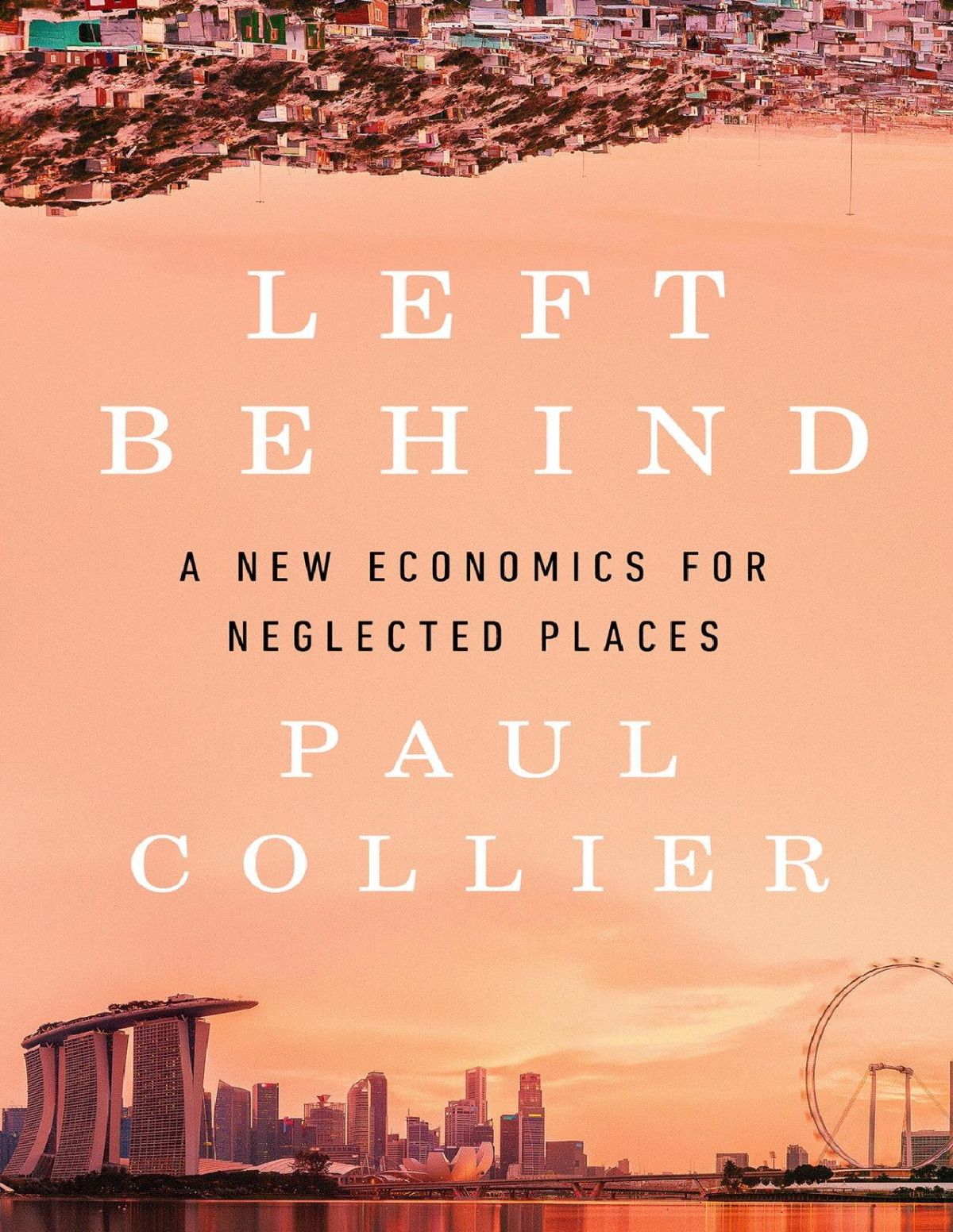

Most ebook files are in PDF format, so you can easily read them using various software such as Foxit Reader or directly on the Google Chrome browser.
Some ebook files are released by publishers in other formats such as .awz, .mobi, .epub, .fb2, etc. You may need to install specific software to read these formats on mobile/PC, such as Calibre.
Please read the tutorial at this link: https://ebookbell.com/faq
We offer FREE conversion to the popular formats you request; however, this may take some time. Therefore, right after payment, please email us, and we will try to provide the service as quickly as possible.
For some exceptional file formats or broken links (if any), please refrain from opening any disputes. Instead, email us first, and we will try to assist within a maximum of 6 hours.
EbookBell Team

4.0
46 reviewsThe world-renowned economist offers a ground-breaking new vision for inclusive prosperity
Left behind places can be found in prosperous countries—from South Yorkshire, integral to the industrial revolution and now England’s poorest county, to Barranquilla, once Colombia’s portal to the Caribbean and now struggling. More alarmingly, the poorest countries in the world are diverging further from the rest of humanity than they were at the start of this century. Why have these places fallen behind? And what can we do about it?
World-renowned development economist Paul Collier has spent his life working in neglected communities. In this book he offers his candid diagnosis of why some regions and countries are failing, and a new vision for how they can catch up. Collier lays the blame for widening inequality on stale economic orthodoxies that prioritize market forces to revive left behind regions, and on the arrogant, hands-off and one-size fits all approach of centralized bureaucracies like the UK Treasury. As a result, Collier argues, the UK has become the most unequal and unfair society in the western world.
Yet the core message of Left Behind is hopeful: bringing together encouraging case studies of recovery from around the world, Collier shows how renewal is achievable through a combination of collective learning, moral leadership and local agency. With keen insight, he draws lessons from such seemingly disparate fields as behavioural psychology, evolutionary biology and moral philosophy to share a bold, galvanizing vision for a more inclusive, prosperous world.
Review"Paul Collier shows how centralized authority and economic orthodoxy have hollowed out communities and deepened the divide between prosperous and neglected places. Ranging across politics, economics, and moral philosophy, he offers a compelling vision for renewal. This tour de force book points the way to a political economy of shared prosperity and common purpose."―Michael J. Sandel, Author of The Tyranny of Merit
"Being left behind is a curse on people, places, and even whole countries. Paul Collier brings his astonishing range of global experiences and interdisciplinary knowledge to forge a guidebook for catching up. He challenges the belief that the market is a trustworthy remedy and catalogues the many collective strategies that have worked in the past and can work again. Great wisdom lies herein."―Sir Angus Deaton, Nobel Laureate for Economic Sciences
“Practical lessons for how neglected places can be drawn back into the mainstream. Collier’s vision of a more inclusive and prosperous world is alluring. This book tells us how we might get there.”―Raghu Rajan, professor of finance, Booth School of Business, University of Chicago
"Paul Collier has written another brilliant, must-read book for anyone interested in human progress. I greatly enjoyed this book, you will too."―Baroness Dambisa Moyo, Author of Dead Aid
"Brilliant, orthodoxy-upending …this book is a compelling and practical manifesto for a better future. It is not only required reading but demands action."―Andy Haldane, Chief Executive, Royal Society of Arts
"Another tour de force from the acclaimed author of The Bottom Billion. Reading the book left me with a sense of optimism and hope that those who get left behind need not stay that way."―Ngozi Okonjo-Iweala, Director-General of the World Trade Organization
"A wide-ranging account of why societies have gone so badly wrong in the early 21st century by emphasizing individualism, and an ambitious – but essential – agenda for tackling some of the problems."―Professor Diane Coyle, Author of GDP: A Brief but Affectionate History
"In this brilliant, passionate, angry book, Paul Collier makes a deeply unfashionable but completely convincing case for hope. Drawing on a wide range of fascinating/persuasive/hugely interesting case studies from across the world Collier shows that with appropriate support left behind places can “spiral up” – rebuilding their communities and their economies through respect, hard work and good governance. In the process he draws on the latest research to show us what good states look like and how they operate. A manual for the future for all of us."
―Rebecca Henderson, John and Natty McArthur University Professor, Harvard University
Sir Paul Collier is Professor of Economics and Public Policy at the Blavatnik School of Government and a Professorial Fellow of St Antony’s College, Oxford. From 1998–2003 he took a five-year Public Service leave during which he was Director of the Research Development Department of the World Bank. He is currently a Professeur invité at Sciences Po and a Director of the International Growth Centre at the London School of Economics. He has written for the New York Times , the Financial Times , the Wall Street Journal , and the Washington Post. Collier has authored numerous books, including The Bottom Billion (Oxford University Press, 2007) which in 2008 won the Lionel Gelber, Arthur Ross and Corine prizes and in May 2009 was the joint winner of the Estoril Global Issues Distinguished Book prize.